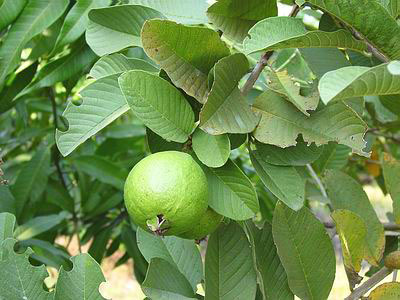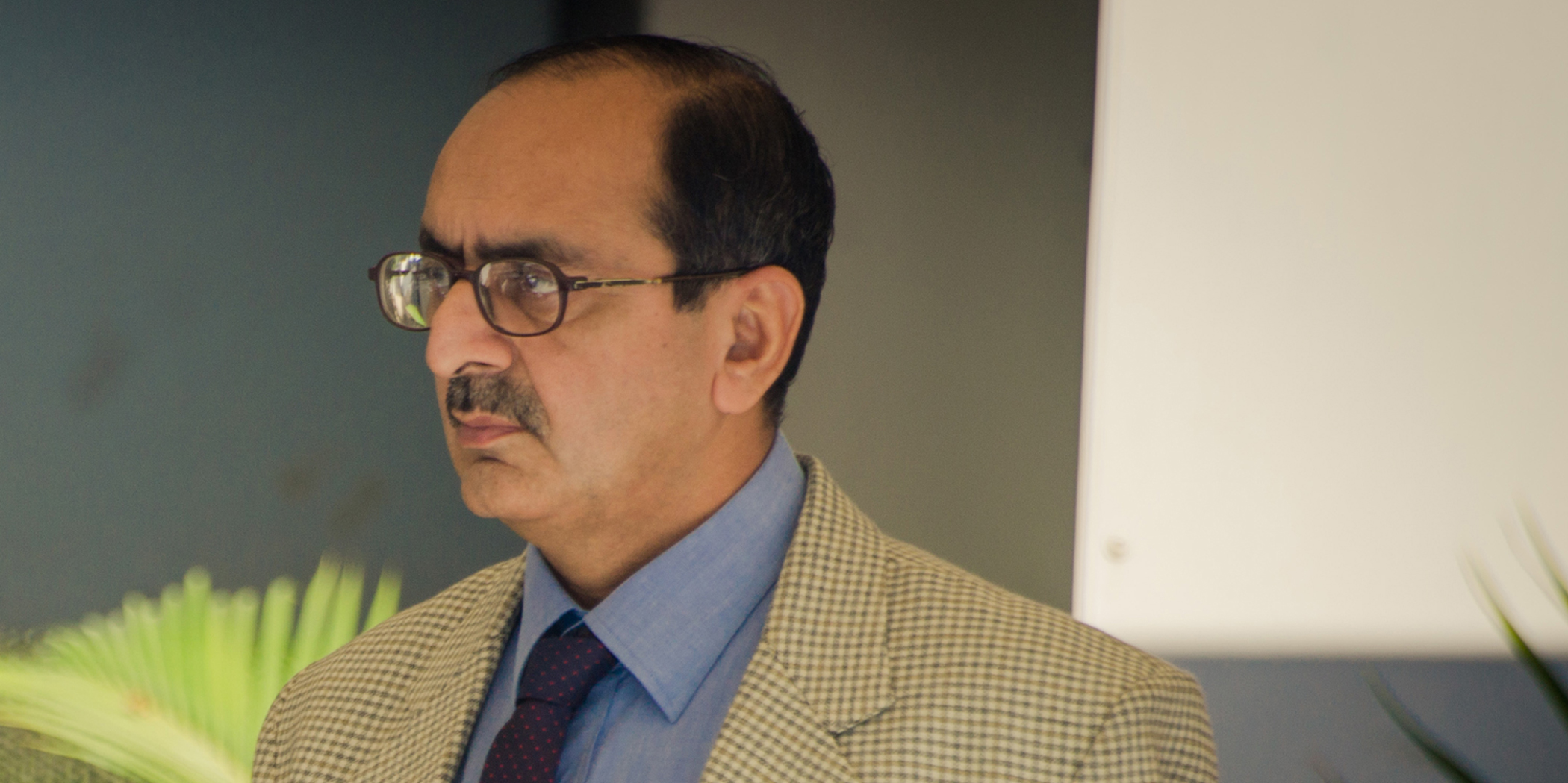A Guava Tree
This is the story of one of my neighbours. Let us call him - Mr. Gupta (not his real name). He had planted a guava tree in his house next to the boundary wall. When the tree grew up, its branches were more outside his compound than inside. During winter, the tree used to be laden with fruits that were really very sweet. Children from the colony and nearby slums used to pick the fruits and have a good time. The tree produced fruits in such abundance that there was no way that Mr. Gupta's family could have eaten all the fruits. In just a few years, his house was identified by the guava tree and the sweet guavas that every child, especially the poor ones, in the locality had tasted.

So, it came as a great shock for me to see one morning the tree cut from its roots and lying on the ground. Mr. Gupta, who had planted the tree and seen it grow, was standing there supervising cutting of the tree. I asked him the reasons for this drastic action. He said that his family had got bored of eating guavas so the tree had become useless for them. He was also extremely annoyed with the fact that street urchins were eating the fruits. He had other reasons too - dry leaves from the tree were a nuisance; his privacy was violated by children entering his compound; the tree also attracted a large number of birds who used to chatter all through the day.
There was no way one could have argued with Mr. Gupta. The tree was on his private land and was his private property, which gave him all the legal right to do as he pleased. But could there be a perspective on the matter which is above all laws passed by Parliament or Legislature? Could there be a 'dharm' perspective on the matter? Could there be a social / moral / ethical view on the whole issue?
Mr. Gupta's mentality is typical of the present day. A person judges everything by what its benefits are for oneself. The concept of doing something for others seems so alien to the modern man. Selfishness has got deeply embedded in every cell of mind and body of the modern man. Poor children enjoying a sweet guava from a tree in his yard give him no pleasure. He sees them as dirty, noisy nuisance-makers but never as loveable sweet children. If children are not lovely, how can chattering birds be a source of pleasure? Modern man seems to believe that happiness comes from possessions, privacy, good food, sex and, most important - flipping through a zillion channels on television. Simple pleasures of watching children play or hearing the chatter of birds are unknown to the man who is in a race for grabbing all the happiness.
Strange as it may sound, happiness is like sand. It slips out of one's hands when one tries one's best to hold on to it. On the other hand, when one focuses on giving happiness to others one experiences peace and happiness, which is richer than what any possession can ever give to a man.
My grandfather's generation explained this in different terms. They used to say that this was an act of 'punya' (a good act, which gets added on the positive side on the balance-sheet of 'karma'). They used to say that children who eat fruits from one's tree will give their good wishes and birds visiting the tree will also bless the house-owner. All this has been debunked as irrational superstition by the so-called educated men who seem to have all the answers. As a result of all this 'education' modern men like Mr. Gupta cut down guava trees.
But why blame Mr. Gupta alone? How often do you see fruit-bearing trees in public places? Government and municipal authorities, not only in India but in every part of the world, plant trees that look grand or beautiful but not the ones that bear fruits. Why let street urchins and dirty poor 'slumdogs' have the benefit of free nutritious fruits?
Western education has ridiculed and pushed out the traditional Indian values, which help creation of a dev society. The key issue here is of dev versus danav perspective. A dev is one who gives. A tree is a dev because it gives fruits selflessly. Planting and caring for a fruit tree (whose produce was not intended to be sold) was always considered a devic or divine act. This divine act benefited the doer as well as the whole society. It needs no genius to show that if every house in a country had trees laden with juicy fruits available for all and sundry to pick, no one in the country will ever sleep hungry. Surely, a society that is free of hunger will have less crime. The brotherhood that picking from each other's trees promotes cannot be explained; it can only be experienced.
When I was a child, we did not carry a water bottle to school or even to a playground. It used to happen often that we felt thirsty and there was no water around. So the simple solution was to walk to a nearby house and ask for water. The house owner or lady would be too pleased to give us water. At times, he or she would also lovingly give us something to eat. We used to live in a colony which was in the middle of a forest. There were trees of all sorts around. So picking wild fruits from trees was a common pastime for all the children. This was all great fun. We grew up in an environment where we experienced love from strangers and from nature. It pains me to see that my grandchildren may inherit a country shaped by people like Mr. Gupta. This sadly will be a country where no one will find children lovely; where no one will do the effort of giving water to a thirsty child; where trees laden with fruits will be cut so that one does not have to sweep the yard; where throats will be parched and where birds will not chatter.
I dread the thought. My only solace is that this is a future which may never come. I hope and dream that one day my children and grandchildren will rise up to plant more fruit trees and not cut them. I hope that none of them grows up to become Mr. Gupta.
Before I close - let me add a few words about Mr. Gupta. He is getting his house redone as per the advice of a leading vaastu expert. He says that the expert has promised that he would have peace and prosperity in his house after the renovation. He is also hoping that his wife will withdraw the divorce papers when the house has a new look. May the Almighty give some wisdom to Mr. Gupta!


